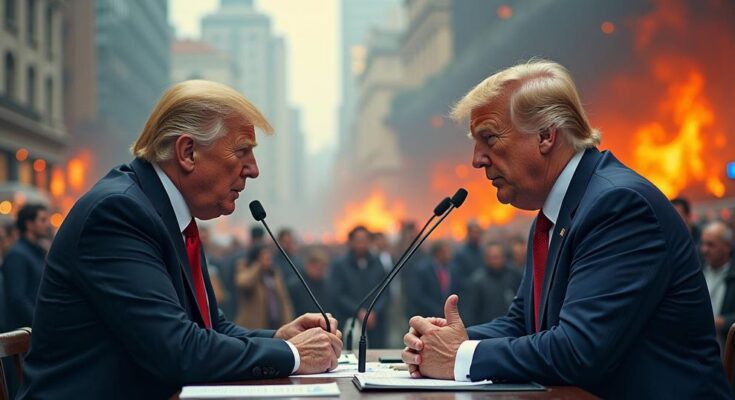The podcast focuses on the misleading promises of tariffs in reviving manufacturing jobs and reducing the trade deficit. Economist Maurice Obstfeld argues against steep tariffs, highlighting their negative impact on consumers and minimal effectiveness in achieving the desired economic outcomes. He suggests exploring alternative policies for genuine economic improvement.
In the realm of politics where the promise of jobs and economic revival looms large, tariffs have become a rallying cry for presidential candidates. Yet, as the astute Maurice Obstfeld, a respected economist and senior fellow at the Peterson Institute for International Economics, emphasizes, the allure of tariffs can be misleading. In a recent discussion, he and Kim Clausing dissect the complexities surrounding tariffs, particularly in the context of the candidates’ conflicting approaches. Obstfeld clarifies that imposing steep, uniform tariffs—like those championed by candidate Trump—poses a far greater burden on American consumers than anticipated. These tariffs won’t magically resurrect manufacturing jobs or dramatically alter the trade deficit. Instead, they risk significant price hikes on the very goods they aim to protect. Moreover, the revenue generated from such tariffs would be meager at best and would likely incite retaliatory measures from trading partners, leading to a tit-for-tat scenario that could escalate into a trade war. But it’s not just about the immediate financial repercussions; it’s about the larger picture. Obstfeld advocates for alternative strategies that could genuinely foster job growth and economic stability without the unintended fallout that comes from heavy-handed tariff policies. The insight he provides offers a glimmer of hope for pragmatic solutions amid the clamor of populism that often simplifies complex economic realities into catchy slogans.
The discussion on tariffs has gained momentum among political candidates as they vie for votes, linking tariffs to the revival of American manufacturing and a reduction in the trade deficit. These sentiments resonate well with the public, especially those affected by job losses in traditional industries. However, as economists like Maurice Obstfeld note, the economic realities are far more nuanced. The influence of tariffs on the domestic economy is often overstated, leading to misconceptions about their effectiveness and overall consequences. Understanding these implications is vital for grasping the true impact of tariffs on the economy and the lives of everyday Americans.
In conclusion, while tariffs might sound like a straightforward solution to economic woes, the analysis by Maurice Obstfeld reveals the pitfalls of such policies. They are unlikely to fulfill the promises of job restoration or significant debt reduction, and instead, they might encumber consumers and ignite international trade tensions. By seeking alternative economic strategies, we might better harness the potential for genuine growth and stability. Thus, it’s essential to look beyond the surface and engage in informed discussions about the most effective ways to tackle economic challenges.
Original Source: econofact.org



